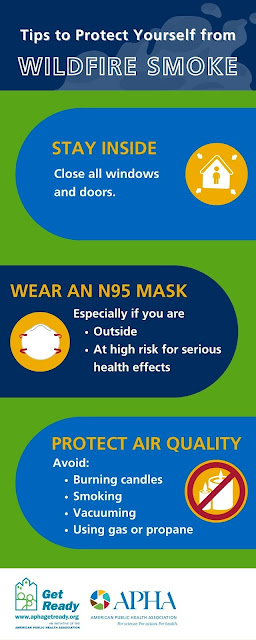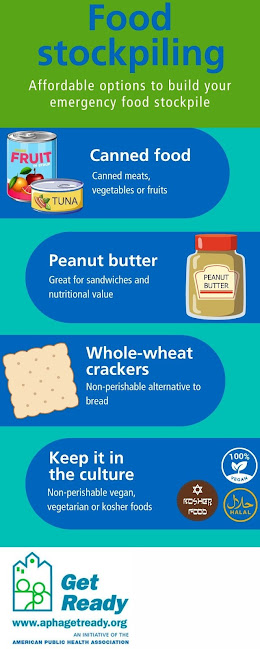The American Public Health Association’s 2023 Annual Meeting and Expo is right around the corner! With all the excitement of the different events, there are so many options to choose from. If you’re attending the meeting in Atlanta, you’ll want to check out information briefings, scientific speakers, exciting keynote speakers and lots of other activities.
The Get Ready team made a list of preparedness events for each day that relate to preparedness and infectious disease prevention! If you’re attending, check out some of these sessions:
Sunday:
1- 2 p.m., Sunday, Nov. 12, session 2014: “COVID-19: An On-Going Pandemic,” a poster session hosted by APHA’s Student Assembly
2:30 – 4 p.m., Sunday, Nov. 12, session 2061: “Children’s Environmental Health,” an oral session
4:30 – 6 p.m., Sunday, Nov. 12, session 2167: “Disabilities, Disasters and Emergency Preparedness: A Collaborative Oral Session,” a collaborative session with the Injury Control and Emergency Health Services and Disability Sections
Monday:
8:30 – 10 a.m., Monday, Nov. 13, session 3021: “Integrating Measurement, Mapping and Community Narratives to Assess and Alleviate Environmental Health Stresses,” an oral session Endorsed by APHA’s One Health and Community Health Planning and Policy Development Sections.
10:30 – 11:30 a.m., Monday, Nov. 13, session 3068: “Climate Change & Health Poster Session,” a poster session hosted by APHA’s Environment Section
2:30 – 3:30 p.m., Monday, Nov. 13, session 3194: “Environments & Aging in Place” a poster session hosted by APHA’s Aging and Public Health Section
6:30 – 9p.m., Monday, Nov. 13, session 369: “Environment Section Social Hour,” a social hour hosted by APHA’s Environment Section
Tuesday:
8:30 – 10 a.m., Tuesday, Nov. 14, session 4026: “Emerging Topics in Environmental Health,” an oral session hosted by APHA’s Environment Section
10:30 – 11:30 a.m., Tuesday, Nov. 14, session 4081.1: “Disaster Response Late Breakers Poster Session,” a poster session hosted by APHA’s Injury Control and Emergency Services Section
4:30 – 6 p.m., Tuesday, Nov. 14, session 4273.2: “From Combating Climate Denialism to Fighting False Solutions: The Continuing Absence of Health and Justice in Climate Policies and the Urgent Need for Change,” an oral session hosted by APHA’s Center for Climate, Health and Equity
4:30 – 6 p.m., Tuesday, Nov. 14, session 4294: “Climate Change, Disasters and Environmental Health,” an oral session hosted by APHA’s Environment Section
Wednesday:
10:30 a.m. – 12 p.m., Wednesday, Nov. 15, session 5064: “Reimagining the Role of Health Departments and Their Partners in Responding to Climate Change: The Building Resilience and Climate Equity Framework,” an oral session hosted by APHA’s Center for Climate, Health and Equity
12:30 – 2 p.m., Wednesday, Nov. 15, session 5136: “Climate Change and Health,” an oral session hosted by APHA’s Environment Section
All of this year’s Annual Meeting events are listed in the online program for registered attendees.
If you’re at the Annual Meeting stop by the Get Ready booth, located in APHA Central in the Expo Hall! Our team will have fact sheets for your individual preparedness to different emergencies as well free flashlights to complete your emergency stockpile! Stop on by and Get Ready with us!







.png)